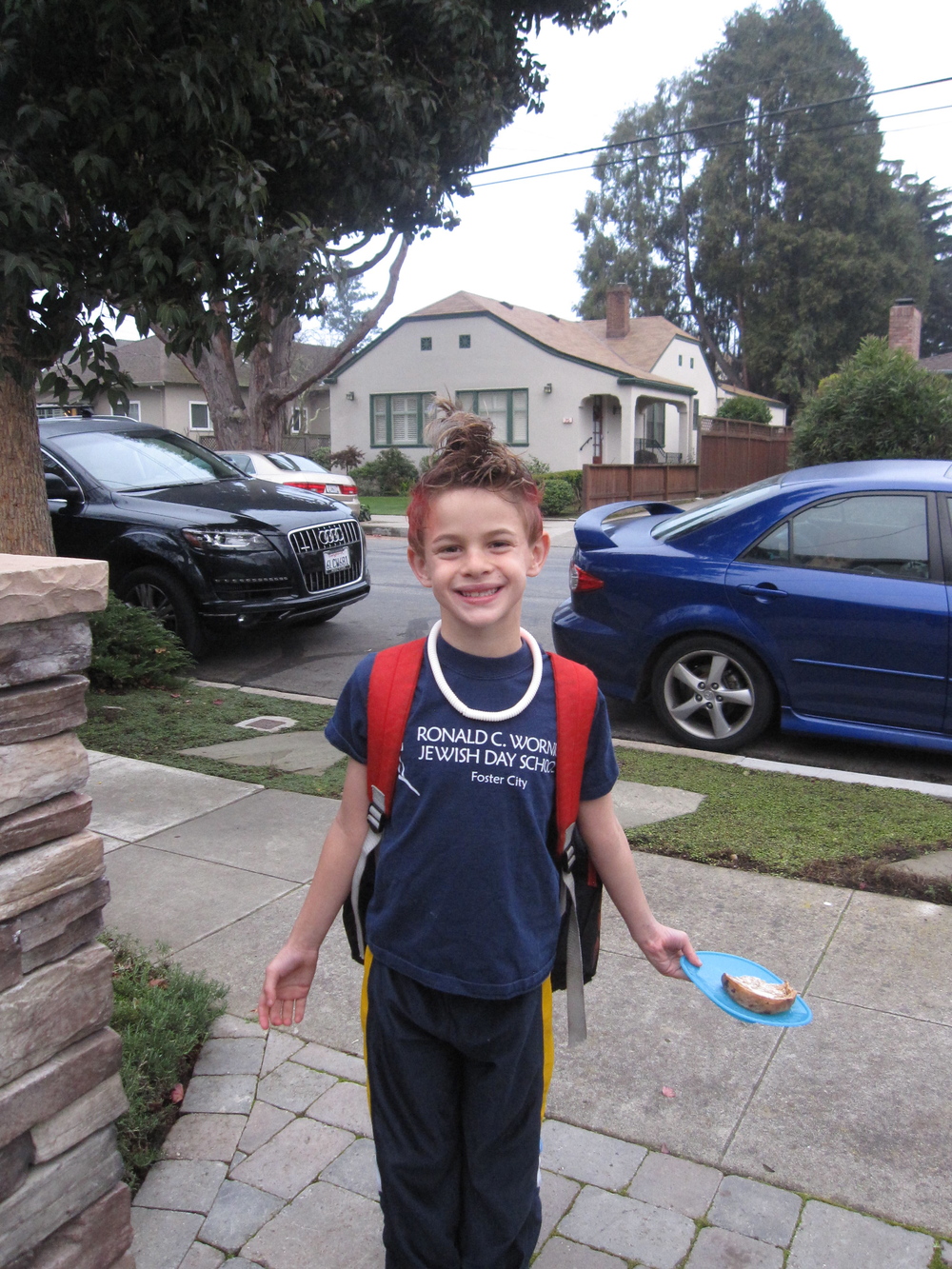Live Big
Letter to my kids about how I hope they live their lives.
Read More My son is bright, athletic and unfortunately, quick tempered with the tendency to react physically. He runs away. He’ll hit someone. Sometimes he’ll curse (which is actually an improvement, but still not appropriate). We’re working with his school to help him develop the emotional maturity to express anger and frustration rather than act on it. We know that by the time he’s nine, it’ll be better. But he’s seven and it wasn’t a big surprise when the sleepaway camp sent an email that he was having some “behavior issues”. Most impressive was that they asked for strategies to help him succeed.
My son is bright, athletic and unfortunately, quick tempered with the tendency to react physically. He runs away. He’ll hit someone. Sometimes he’ll curse (which is actually an improvement, but still not appropriate). We’re working with his school to help him develop the emotional maturity to express anger and frustration rather than act on it. We know that by the time he’s nine, it’ll be better. But he’s seven and it wasn’t a big surprise when the sleepaway camp sent an email that he was having some “behavior issues”. Most impressive was that they asked for strategies to help him succeed.
My son isn’t particularly unique – his emotional development is normal. Average. Unimpressive, but not clinically delayed or anything. And the motherhood manual doesn’t include strategies to help a little boy react older than he is. So – here’s my addendum to the motherhood manual – my top ten tricks for managing a 7-year-old boy.
What would you add to the manual? Any techniques work for you and your active boy?
My family has a paper problem and I'm pretty sure the sheets of paper have learned to reproduce in our welcoming environment. I hired an organizer to help me deal with my husband and my issues. So far, so good and it's been a couple of months. For the kids, we let everyone know that Saturday morning was desk cleaning day. Dad led the removal of everything from the desks and the initial garbage disposal. Mom led the review of what to keep and what to relegate to memories. Empty desks ready for the next year of work.
School supplies aren't particularly expensive, but so many of them come home at the end of the year that it seems wasteful not to re-use the ones that are still virtually new. We put all the existing inventory on the dining room table, tested pens, pencils, erasers, markers and more until we had everything sorted. Compared our inventory to the school supply list and highlighted what was left to buy.
My kids go to a bunch of camps over the summer where they make new friends and explore their interests. Sometimes there's a schoolmate at these camps, but usually not. August is a great time to reconnect them with their friends. We're doing a Giants game with one friend. Working on more (social calendaring is not my strong suit). If your child is at school with my sons - want to have a playdate?
It doesn't take much for kids to realize that summer is a lot of fun. No homework. No tests. No reports. Lots of sports and fun. Our kids usually find school to be fun too (not like summer, but still fun) - they like learning and being with their friends. Instead of bemoaning the end of summer, we talk about what they're looking forward to in their next year of school and what they want to learn. We convey our own genuine excitement for the experience they're about to have at school. A little bit of the self-fulfilling prophecy - you get what you expect.
Our kids are pretty active and we want them to run around and play a lot after school. Because we both work, we need to put a little structure into that playtime. Each son gets to play one organized sport a season - their choice. They have music instruction. And they get to do something else they like - active. Sometimes two something else's depending on proximity. So now we're choosing what the activities will be (except for soccer, that has to be chosen in April for the fall season). It's fun and builds anticipation with the kids.
Somehow, my kids have fallen in love with the haircut experience. It's likely the lollipop for the little girl and the Pao de Queijo for the older two. But in any case, before they go back to school, they need to look sharp and making this a fun outing reduces the amount of complaining it could otherwise entail.
With the new school year looming, I can’t help but think about how much easier life has been over the summer.
1st – Camp is longer than Kindergarten. As of the 1st day of camp, I’ve had an extra 2 hours/day to get things done.
2nd – In some sick way, creating crazy car pools to get all of the kids where they need to be is challenging, but the sense of accomplishment is there too.
In my recent, unscientific survey of parents of boys, I’ve discovered a 3 to 1 probability that sons won’t tell you extensive details about their day. Especially if something didn’t go their way that day. And with boy energy introduced to a world that expects 5 year old children to control impulses that physiologically require the brain development of an 8 year old, often things don’t go their way.
It’s hard to be a boy today. And it’s hard to be a boy’s parents.